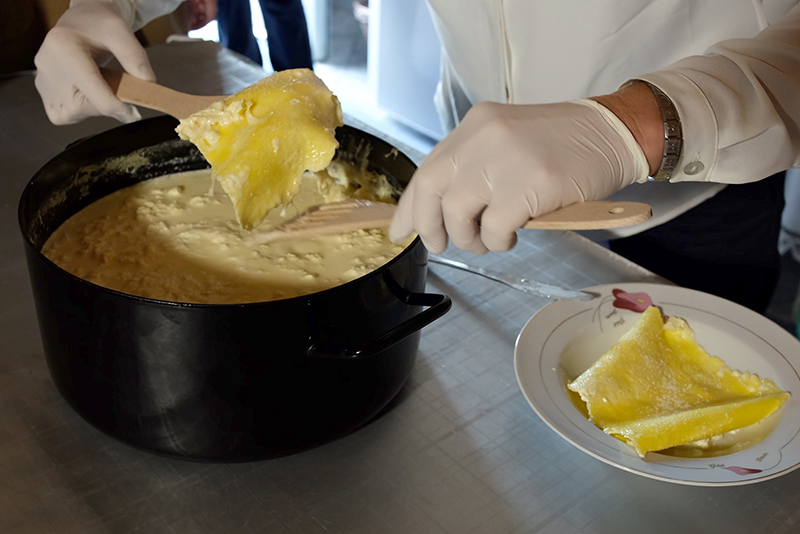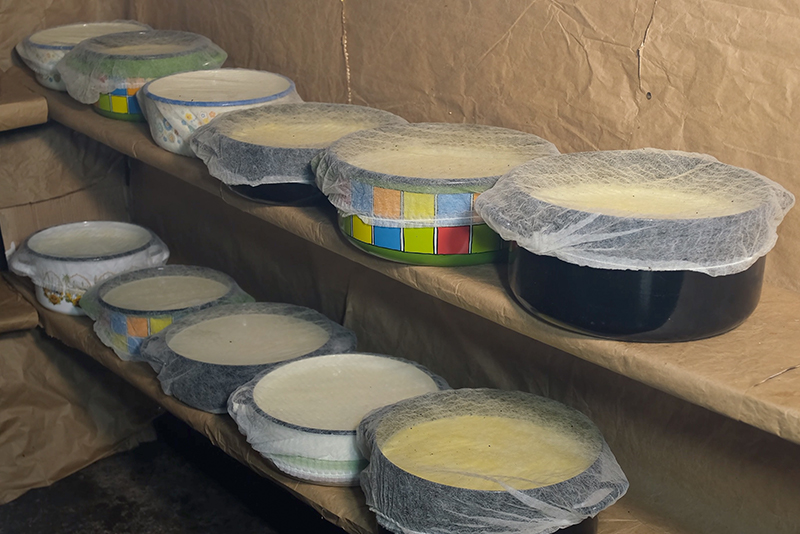On a small dairy farm in central-eastern Bosnia, Nada Maksimovic has for decades been producing a traditional cream cheese that is sold throughout the region. This delicacy, known as “Romanijski kajmak,” is a far cry from anything available on regular grocery store shelves around the world. Its generations-old recipe and distinctive production process create a smoky taste that is unique to this land.
Though Maksimovic is a highly capable farmer and producer of Romanijski kajmak, she—and other women farmers in her rural area—lack entrepreneurial training and the know-how to navigate institutional bureaucracies. So when large-scale companies without local ties began selling Romanijski kajmak widely, these women farmers thought it was the end of their small businesses.
But the solution was as close as the ground beneath their feet.
By authenticating the geographic origin of Romanijski kajmak, even the smallest local enterprise, like Maksimovic’s, got protection and the possibility of accessing international markets. The process was supported by IFC as part of a larger effort to increase Bosnia’s competitiveness in agriculture—particularly in the dairy sector.
Romanijski kajmak obtained its international certification of geographic origin with the World Intellectual Property Organization (WIPO) in 2019. Now, the product is institutionally protected in 29 countries, including nine member states of the European Union. The WIPO credential will clear the path to these markets and allow better return and profits to Bosnia’s small producers, helping them grow their businesses.
A Recipe for Success
IFC’s work to help Bosnian agricultural products become more viable in the international market was carried out via the Investment Climate and Access to Markets (ICAM) project, executed in partnership with the U.K. Government. WIPO’s certification of foods’ origin was imperative because of evidence showing that consumers are willing to pay more for “authentic” foods.

To help women makers of Romanijski kajmak protect their product, IFC began a multi-step process to authenticate the local ingredients and the finished product. First, IFC helped the farmers form an association and register with the right government ministries. Once the women were eligible to pursue certification with the WIPO, IFC backed them by clarifying the institutional framework and designing instructions for how to create the strongest application.
IFC’s experience with other certification processes throughout the region informed the process. For example, IFC provided models of other successful applications to the women farmers’ association. This technical support helped the women standardize their technology and methods, refine their quality assurance tests, and finally file the application with WIPO.
But WIPO’s permission to use a geographical indication on their products, certifying the origin and preventing use by those whose product does not conform to the applicable standards, was only the beginning. Once Romanijski kajmak was given its stamp of approval, IFC assisted the women farmers in easing entrance into the market in other ways such as developing promotional tools and ensuring international presence at selected fairs.
Local Flavor, International Reach
Though Romanijski kajmak is the first Bosnian food product to receive WIPO certification, the process by which it achieved this now serves as a model for other regional producers of traditional and specialty foods.

Several producers of authentic cheese from Bosnia are now working through the process of geographical identification, based in part on the guidance provided by IFC. Some of the efforts have been documented in a publication from the Food Safety Agency of Bosnia and Herzegovina.
For agricultural producers like Maksimovic—women whose small businesses were in danger of shutting down because they lacked the ability to compete with larger commercial enterprises—an adherence to tradition and culture now translated into a competitive advantage.
This is one of the goals of the ICAM project, which aims to provide more opportunities for small farmers and local businesses to access markets. ICAM has provided technical assistance to the dairy sector—among top three most competitive value chains in Bosnian agriculture—since 2016. Early assistance also included helping farmers learn how to align their production with EU standards.
Join the conversation: #IFCimpact
Published in February 2020
